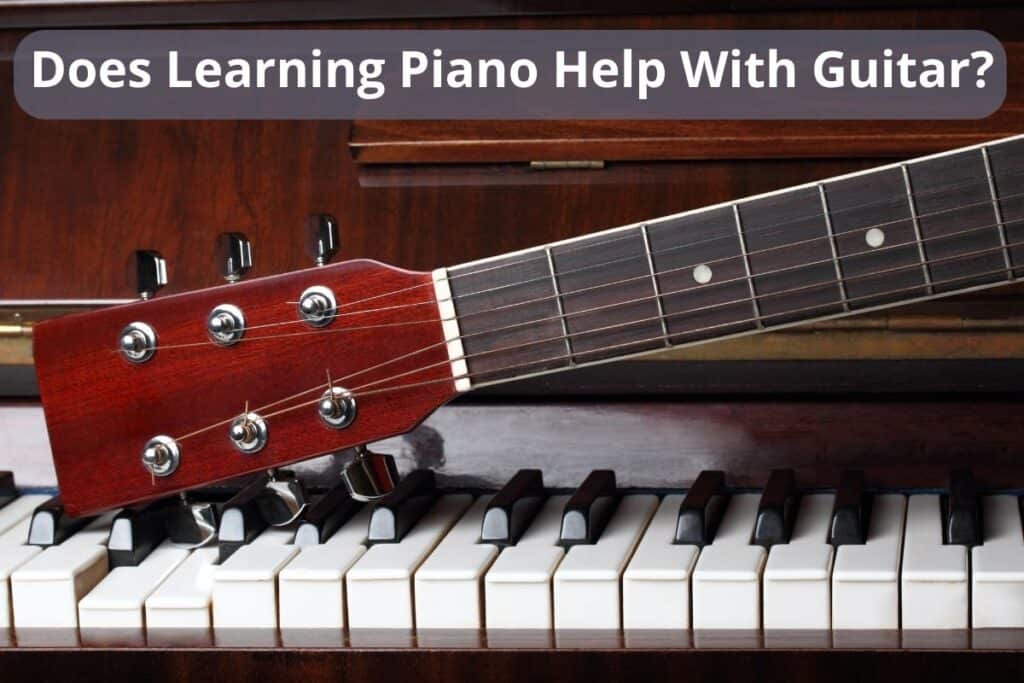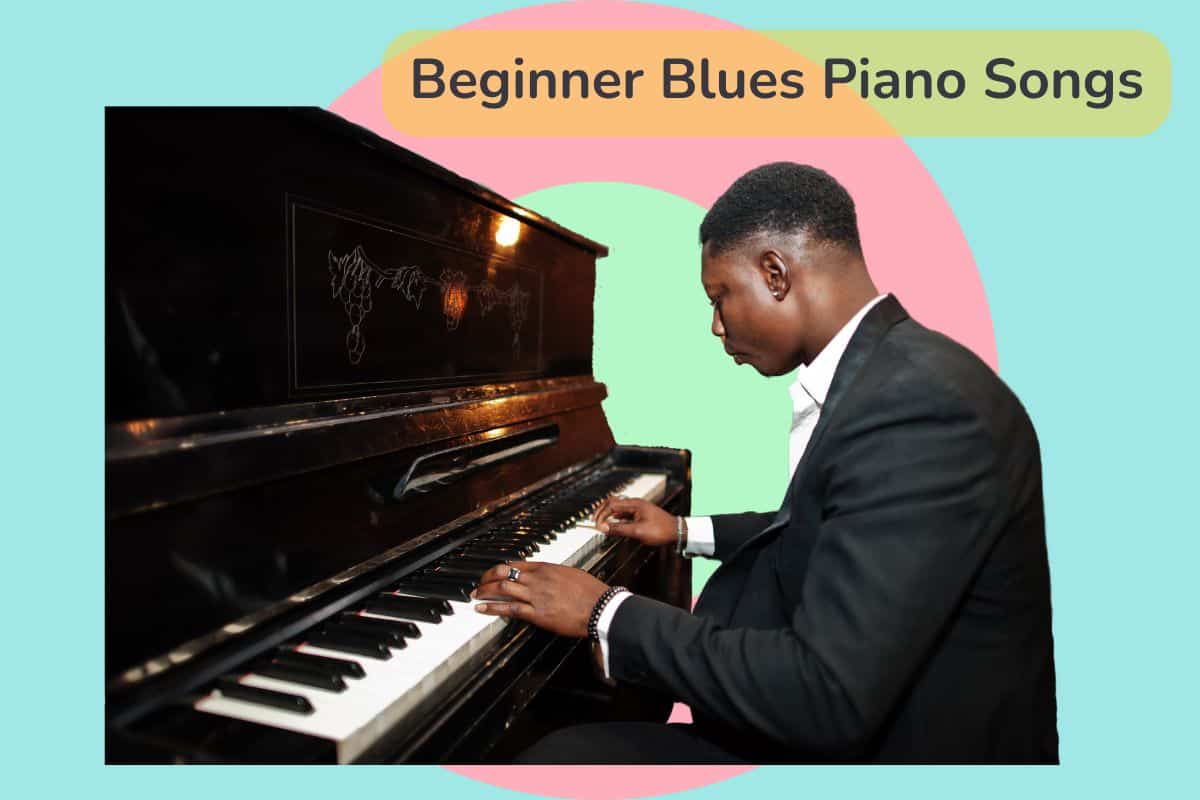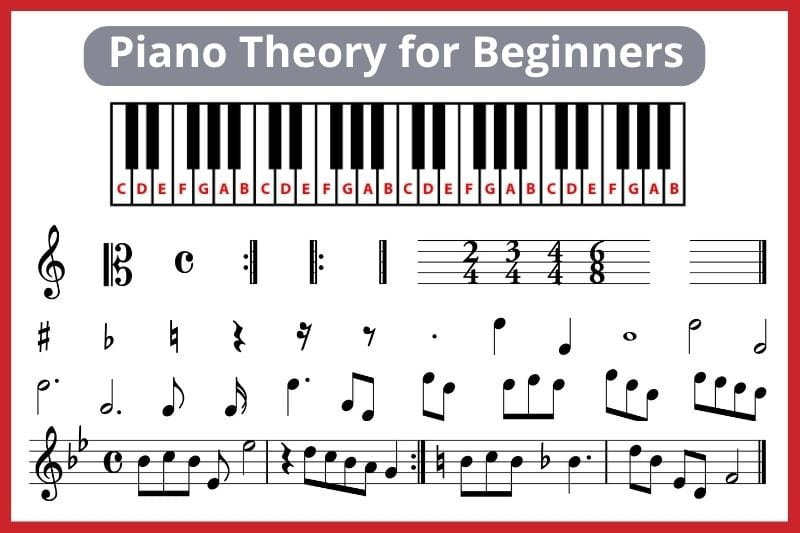Learning to play the piano can be an enriching experience, not just for the direct skills it imparts but also for the benefits it may have on learning other instruments, like the guitar. If you’ve ever been curious about whether sitting down at the keys can improve your guitar playing, you’re onto something. In fact, if you’ve ever wondered whether to add piano lessons to your musical journey, know that it’s not just about learning a new instrument—it’s also about enhancing your overall musicianship.

Musical Foundation and Theory
Learning piano offers a robust understanding of musical foundation and theory, equipping you with skills that enhance guitar playing, such as reading standard notation and developing a keen sense of rhythm and timing.
Understanding Music Notation and Standard Notation
Music notation is the system used to visually represent aurally perceived music through the use of symbols, most commonly found in the form of staff notation, which is the standard for most music. As you start learning to play piano, you encounter both the treble and bass clefs, which is essential for understanding the full range of notes available in music.
- Notes: Learn the placement and value of notes on both clefs.
- Scales: Understand how different notes form scales, a foundational aspect of music creation.
When you transition to guitar, this knowledge allows you to understand chord diagrams and tablatures more intuitively.
Rhythm, Timing, and Coordination
Rhythmic comprehension is critical for any musician. Piano playing hones your sense of timing and coordination, especially since each hand can be doing something different rhythmically.
- Time Signatures: Familiarize yourself with common and complex time signatures encountered in piano scores.
- Musical Timing: Learn how notes are divided into beats and measures, improving your ability to synchronize with music’s pulse.
This background helps you maintain timing consistency when playing guitar patterns or solos.
The Language of Music
Both piano and guitar use the language of music, which includes the foundational rules of music theory such as chord structures, progressions, and the creation of melody and harmonies.
- Chords and Progressions: Piano training often starts with chordal studies, giving you a solid background in creating and recognizing chord progressions.
- Melody and Harmonies: You learn how melody and harmonies work together, which is crucial for playing lead or rhythm guitar.
Your piano experience provides the framework for understanding how guitar integrates into broader musical arrangements.
Technical Skills Development
Finger Dexterity and Hand Independence
Your fingers become more nimble and you develop hand independence through piano practice. On the piano, melodies and harmonies are often played simultaneously, requiring separate actions from each hand. Transferring this dexterity to the guitar, you’re likely to find complex fingerpicking patterns or chord changes become easier to execute. Piano skills build strength and muscle memory that translate into refined guitar techniques.
Chord Voicing and Inversion Techniques
Understanding and utilizing chord voicings and inversions is another area where piano practice is beneficial. Piano allows you to visualize and hear how notes stack to form chords. Here’s how it translates:
- Chord Voicing: On a piano, seeing the spacing and relationship between notes in a chord helps you grasp voicing concepts. On the guitar, this informs your choices for chord variations and enhances your harmonic control.
- Inversion Techniques: Piano practice involves playing chords in various inversions, changing the bass note and overall sound. This concept is transferable to guitar, where you might rearrange notes on different strings to achieve the desired chord inversion.
Fretboard Knowledge and Piano Keyboard Familiarity
Learning the layout of black and white keys on a piano directly impacts your fretboard knowledge on the guitar. Identifying intervals and understanding scale patterns on the piano’s linear path of keys can simplify the process of memorizing notes and scales on the non-linear guitar fretboard. This familiarity can make you more comfortable navigating the guitar, helping you locate notes and construct chords more intuitively.
Instrument-Specific Skills
When you learn piano or guitar, you’re honing skills unique to each instrument. Mastery involves understanding and applying these techniques effectively.
Guitar Techniques
On the guitar, you’ll dive into strumming patterns, a core aspect of rhythm guitar playing. You’ll also study the nuances of guitar solos, which often focus on lead guitar techniques such as bending, vibrato, and picking individual notes. Here’s a brief overview:
- Strumming Patterns: Understanding timing and rhythm to create various musical feels.
- Guitar Solos: Developing dexterity and precision for playing melodies.
- Open Strings: Utilizing open strings to enrich chord transitions and add tonal variety.
Piano Techniques
Pianists focus on quite different technical areas like hand independence and sight reading. Piano playing helps develop a keen sense of harmony and melody, as you’re often playing multiple notes at once. Here are the specifics:
- Hand Independence: Playing different melodies or rhythms with each hand.
- Sight Reading: Reading and interpreting music notation efficiently.
- Chord Structures: Understanding how chords are built and their inversions.
Each instrument fosters distinct physical and cognitive abilities, enhancing your overall musicianship. A piano teacher might concentrate on your sight reading, whereas a guitar player might spend hours on mastering a solo. But don’t be fooled—both instruments will give your musical skills a serious boost.
Cross-Instrumental Advantages
Transferable Skills Between Piano and Guitar
When you learn the piano, you’re not just engaging with another musical instrument; you’re also picking up skills that directly benefit your guitar playing. For instance, scales and chords form the foundation of music on both instruments. Gaining proficiency in these on the piano will strengthen your understanding of harmony and melody. Also, the layout of the piano makes the theory visible and tangible, which helps you visualize these concepts on the guitar fretboard.
- Scales: Both instruments use similarly structured scales, which once learned on piano, can improve your speed and fluidity on the guitar.
- Chords: Piano chords teach you the structure and foundation of harmony that you can translate to the guitar’s fretboard, strengthening your rhythm and accompaniment skills.
Becoming a Multifaceted Musician
As you become proficient in both piano and guitar, you’ll notice your ability to comprehend and create complex musical arrangements blossoms. Learning piano can enhance your role as a composer or member of an orchestra, where understanding different parts and how they interact is important. Your improved skill set may lead to more opportunities and the ability to collaborate effectively with other musicians.
- Harmony: Pianos provide a clear representation of harmonic structures, which can deepen your understanding of musical pieces.
- Composition: Piano knowledge arms you with the chops to compose for more than just the guitar, potentially adding depth to your pieces that appeal to a broader range of listeners.
Frequently Asked Questions
Below you’ll find the answers to some commonly asked questions regarding the intersection of piano and guitar skills.
How does learning the piano benefit your guitar playing skills?
Learning the piano can enhance your understanding of music theory, which is fundamental in navigating the guitar fretboard with more ease. You’ll gain a solid grasp of chord structures and scales on the piano, which can accelerate your ability to recognize these patterns on the guitar.
What are the key differences in learning piano for someone with guitar experience?
If you’re already proficient with the guitar, you’ll find the piano’s linear layout a different visual approach to music. While the guitar strings and frets require a more tactile navigation, the piano keys offer a straightforward map of notes. This shift can provide you with a unique perspective on chord voicing and melody arrangement.
Does mastering piano chords improve proficiency in guitar chord transitions?
Yes, mastery of piano chords can facilitate quicker finger dexterity and smoother transitions on the guitar. Piano practice strengthens your fingers, making it easier for you to form complex guitar chords. Additionally, your improved music theory knowledge will help you anticipate and execute guitar chord transitions with greater confidence.



